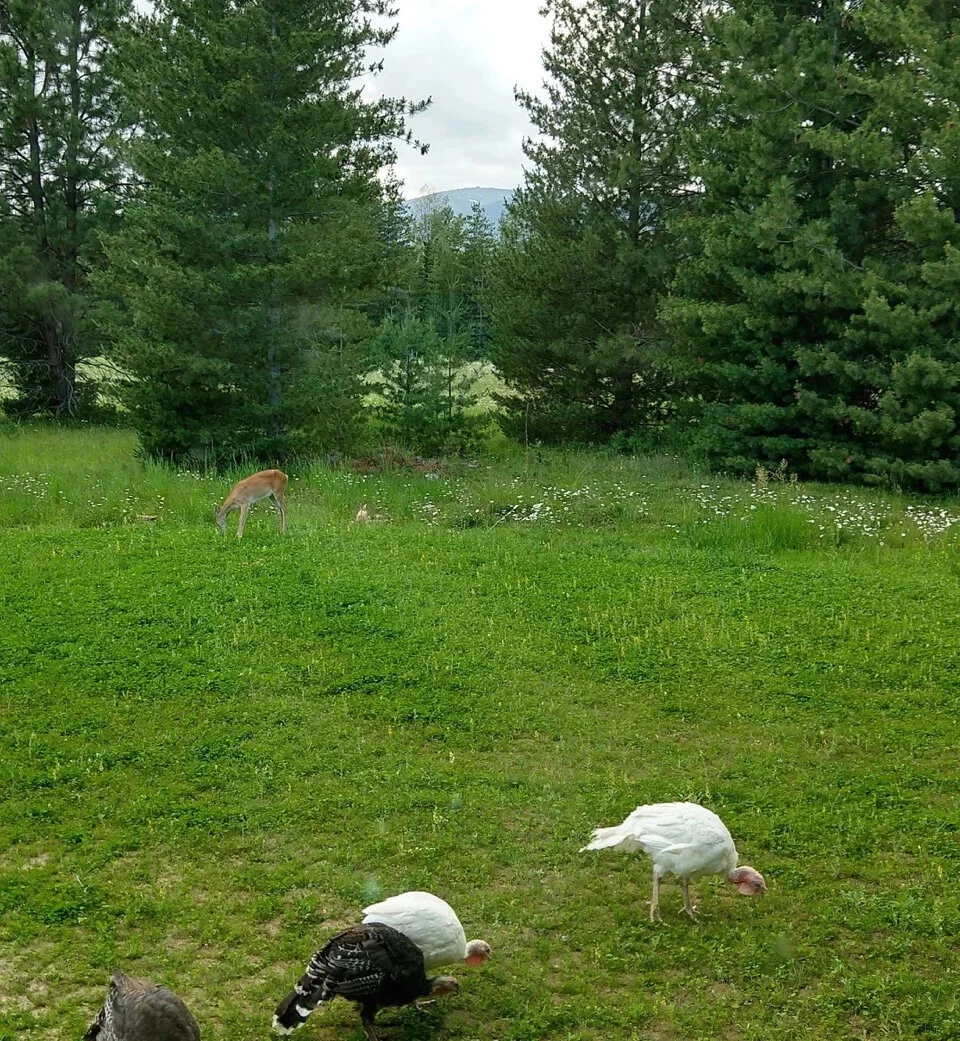Why Grass?
Newly sown clover is a delicious forage!
For most, lawn means grass. Originally developed around castles where visibility was important and cattle served as both lawnmowers and fertilizing machines, grass “lawns” made sense. For most of us today, they are expensive, high maintenance, and prone to a myriad of diseases, weeds, and pests. But what choice do we have? Many!
Clover
My favorite alternative to grass is clover. White Dutch clover grows about 8” tall (micro clover only 4-6”), adds nitrogen to soil, is drought tolerant once established, and can be mowed. For most, it needs only to be mowed a couple times per summer, watered much less if at all, and never fertilized. Herbicides are not only unnecessary but would kill your beautiful clover lawn. If you allow the flowers to mature they will reseed themselves and save additional costs. Grass fungus, grubs, and dog urine patches are a thing of the past. Clover grows densely enough to discourage most weeds and produces beautiful white flowers. While it tolerates shade, it prefers sun. The USDA says it is “highly palatable and nutritious forage for all classes of livestock and most wildlife.” A friend of mine planted her yard in clover last summer and has her chickens, bunny, and turkeys enjoying it, as well as the deer.
There are a few downsides. Initially the seed is expensive (especially the mini/dwarf variety) but a little goes a long way. You will need to water it at least twice a week until established, and it won’t handle a tremendous amount of traffic. Also, if you allow it to flower, it will attract bees. This is great if you like bees and not so great if you are allergic to them.
Alternative Greens
If you live in an arid climate, creeping thyme and oregano make a beautiful, colorful, and fragrant lawn. For a bejeweled lawn, you can add English daisies, violas, and crocus bulbs.
Whether you want to save time and money, or reduce noise, air, and water pollution, alternative lawns are a great choice.
Clover after four months sowing on bare ground.
Another benefit of lawn alternatives is that deeper less frequent watering helps control lawn grubs which feed on grass roots and other organic matter.
Resources:
https://www.nrcs.usda.gov/Internet/FSE_PLANTMATERIALS/publications/idpmcpg8308.pdf
https://www.bulkwildflowers.com/%3Fgclid=EAIaIQobChMIh93OhIGb5gIVWR-tBh19mAihEAAYASAAEgKjj_D_BwE
http://www.todayifoundout.com/index.php/2014/03/grass-lawns-2/



